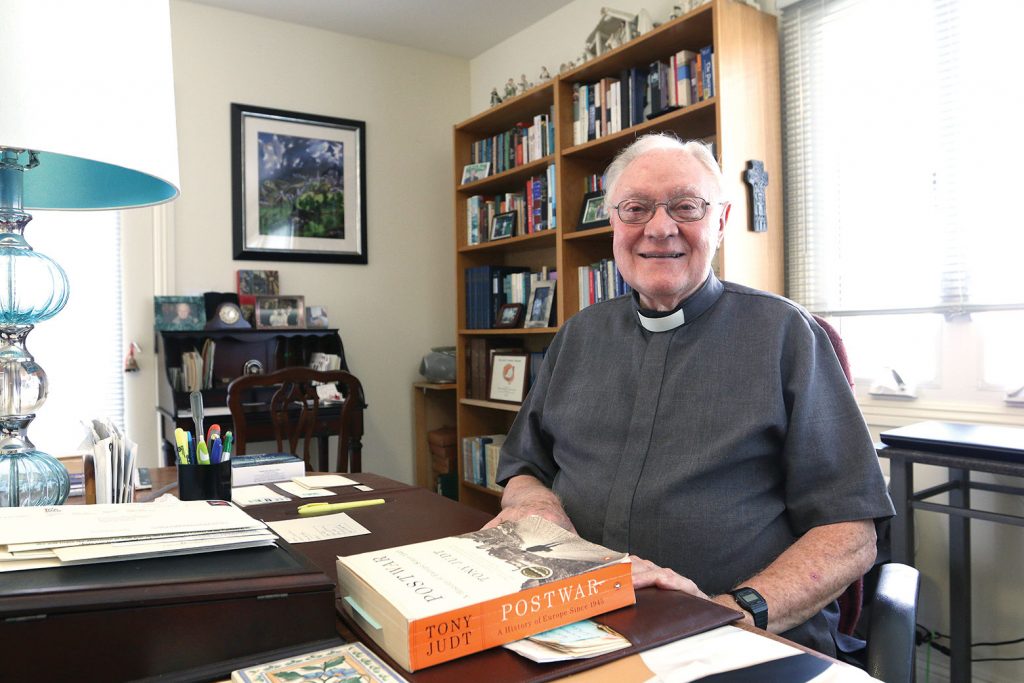Auxiliary Bishop Thomas Curry, 73, now in residence at St. Augustine Parish in Culver City, spends his days celebrating Mass and confirmations as well as working on his next book on religious liberty.
Society has conflated the free exercise of religion with conscientious objection, the bishop said in a recent interview with The Tidings, explaining his current writing project. The two concepts are different both historically and in their origin.
“The First Amendment is addressed to the government, not to the individual person,” said Bishop Curry, who stepped down in 2013 after serving 19 years as regional bishop of Santa Barbara. “It’s the question of what does the government do, and the government is getting into all kinds of areas where it shouldn’t be.”
The phrase “separation of Church and state” has also muddied the issue, he said.
“The Church cannot violate the First Amendment,” he said, clarifying further, “Only the state can violate the First Amendment because it’s addressed to the state. It’s not about controlling the Church, it’s about controlling the state.”
Bishop Curry, who was ordained a priest in 1967 at All Hallows in Dublin, Ireland, for the Archdiocese of Los Angeles, spent his first 27 years as a priest serving as associate pastor, a high school teacher and as the archdiocese’s first vicar for clergy before becoming the secretariat director for church ministerial services.
He studied history in Dublin, then at Loyola Marymount before earning his doctorate at Claremont in 1983. His doctoral dissertation was published as a book, “The First Freedoms: Church and State in America and the Passage of the First Amendment.”
He lives with two adorable cats, Martha and Mary. “They’re less trouble [than dogs]. You don’t have to walk them. They need very minimal attention, you know,” the bishop said.
The Santa Barbara pastoral region, where Bishop Curry served, is the largest region in the archdiocese, but has the smallest population.
“You spend a lot of your time travelling because it’s really — everything is an hour’s drive,” he said. “I found the parishes very good and very vibrant.”
Bishop Curry ordained 100 permanent deacons for the region during his tenure.
Bishop Robert Barron will be the new regional bishop for Santa Barbara, following Bishop Curry and Msgr. Michael J. Jennet, the current episcopal vicar.
“People are very good, very responsive,” Bishop Curry said of the faithful in Santa Barbara. He believes Bishop Barron, as well as Bishops Joseph V. Brennan and David G. O’Connell, will do well in their new roles.
“It’s more about being present to the people and visiting them,” Bishop Curry said. “You get to know the people and really nurturing the parishes. They’ll be excellent bishops.”

